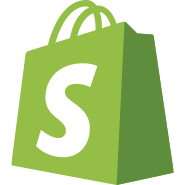Update: How We Reached A Turnover Of €1.2M In 2021 [With Plans To Grow 25% YoY]
This is a follow up story for Kalve Coffee Roasters. If you're interested in reading how they got started, published over 5 years ago, check it out here.
Hello again! Remind us who you are and what business you started.
Hello! My name is Raimonds Selga, and I am one of the co-founders and head of coffee at Kalve Coffee Roasters. We once had the pleasure to be featured by Starter Story before, check it out here.
At our core, we are a coffee roasting company - we work by sourcing our green coffee responsibly and directly, we skillfully roast it for either our brand or a private label customer, and also make sure it’s enjoyed by the end customer at either one of our three coffee shops, with our growing B2C sector!
Despite the obvious risks and difficulties of the pandemic, we have grown to have a 1.2 million EUR turnover in 2021, and we expect to continue growth by a minimum of 25% every year for the next couple of years.


























